If Unpacking captured your heart, a vast array of similar games awaits to enchant you further.
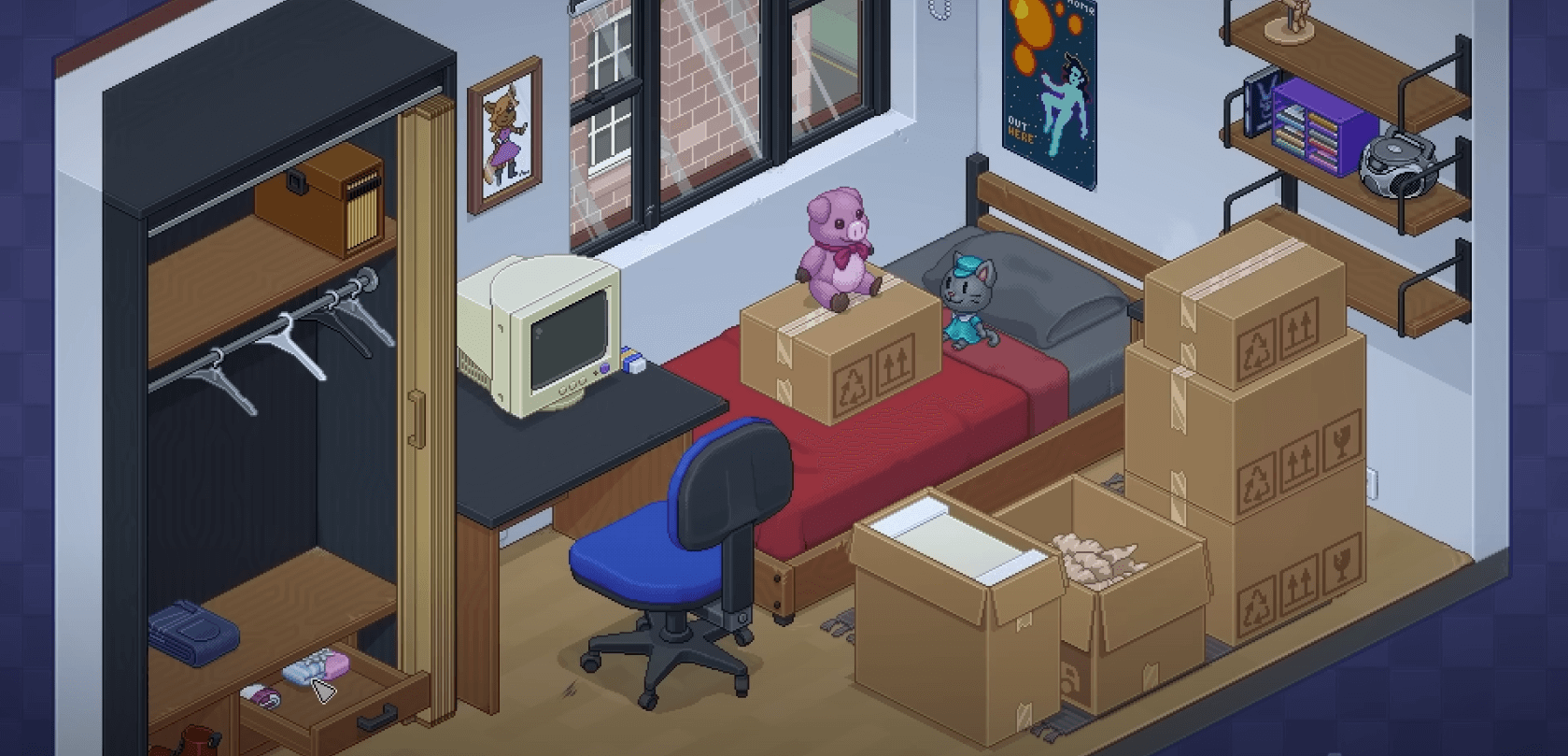
"Unpacking" is a zen puzzle game that combines elements of organization and decoration with a deep narrative experience. Developed by Witch Beam, this game stands out for its unique concept where you unpack items from boxes and place them into a new space, making it feel like home. As you progress, you're not just organizing objects; you're also uncovering the life story of the character through the items they hold dear. The game's pixel art style is both charming and detailed, inviting players into a meditative state as they arrange and rearrange items to fit perfectly in their new spaces. Each level represents a different year in the character's life, offering insight into their journey through the objects they keep.
If you found the calming, story-driven gameplay of "Unpacking" appealing, there are several other games that might capture your interest.
26. Florence
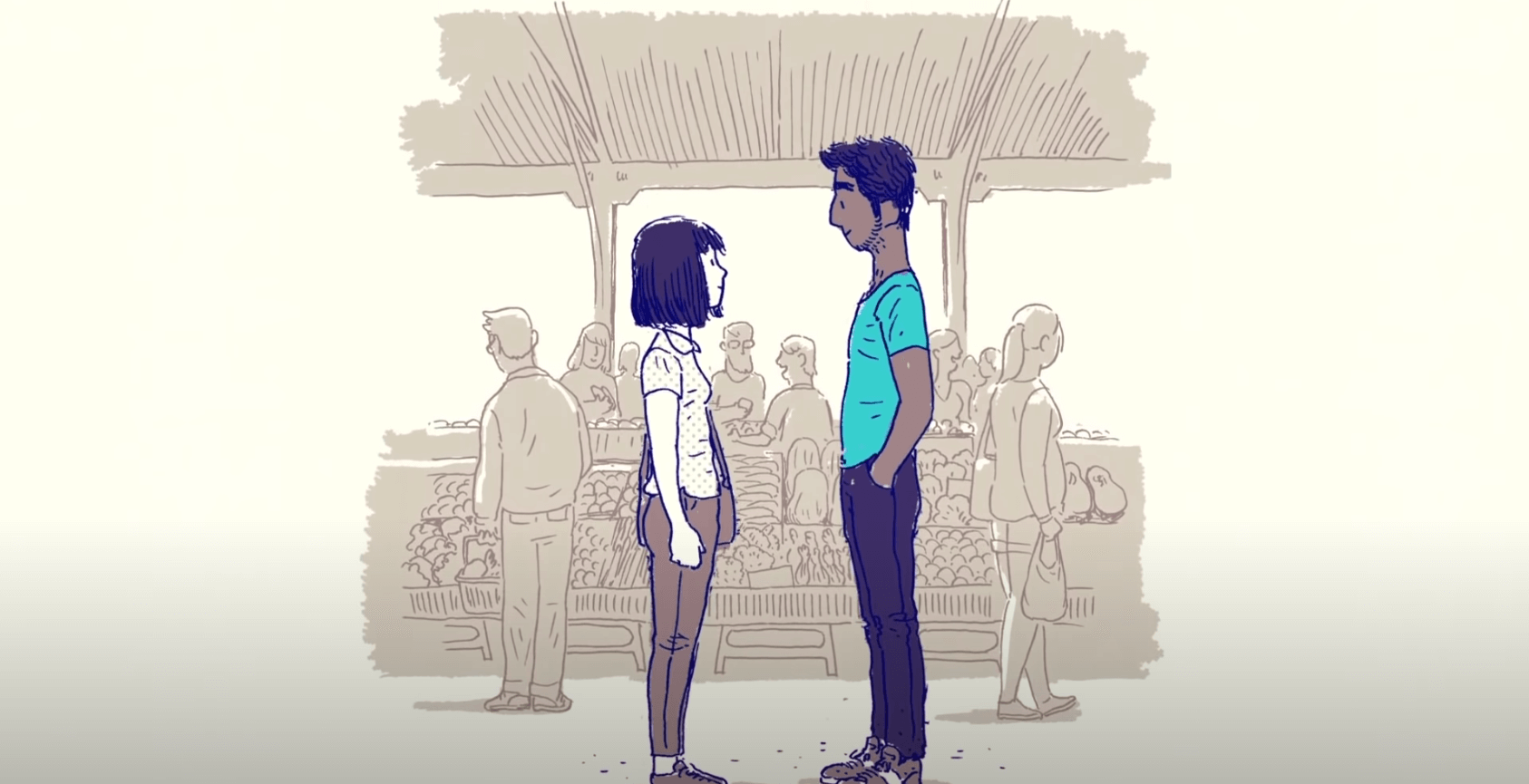
| Publisher | Annapurna Interactive |
| Platforms | Android, iOS, Nintendo Switch, PlayStation 4, Windows |
| Date Released | February 14, 2018 |
| Price | About $6 USD |
If you loved the thought-provoking narrative and minimalist design of Unpacking, you're going to find Florence similarly appealing. Packing the same kind of emotionally resonant story in a unique gameplay format, Florence is an interactive storybook from the award-winning lead designer of Monument Valley that encapsulates love and life in an hour-long playthrough. Just like in Unpacking, you'll save and relive memories in Florence; however, instead of sifting through physical items, you'll do so by navigating through the protagonist's conversations, dreams, and personal thoughts.
The game's user interface is a joy to navigate, akin to the satisfying item placement in Unpacking. And while Unpacking lets you piece together a story through a non-verbal narrative, Florence does the same, albeit through engaging mini-games that simulate the ups and downs of a relationship. This distinctive approach allows the narrative to be just as compelling, but with added depth due to the intricate character development. So, if you're in the search for a game similar to Unpacking that combines immersive storytelling with a unique gameplay, Florence is sure to be a pleasant surprise.
25. A Short Hike
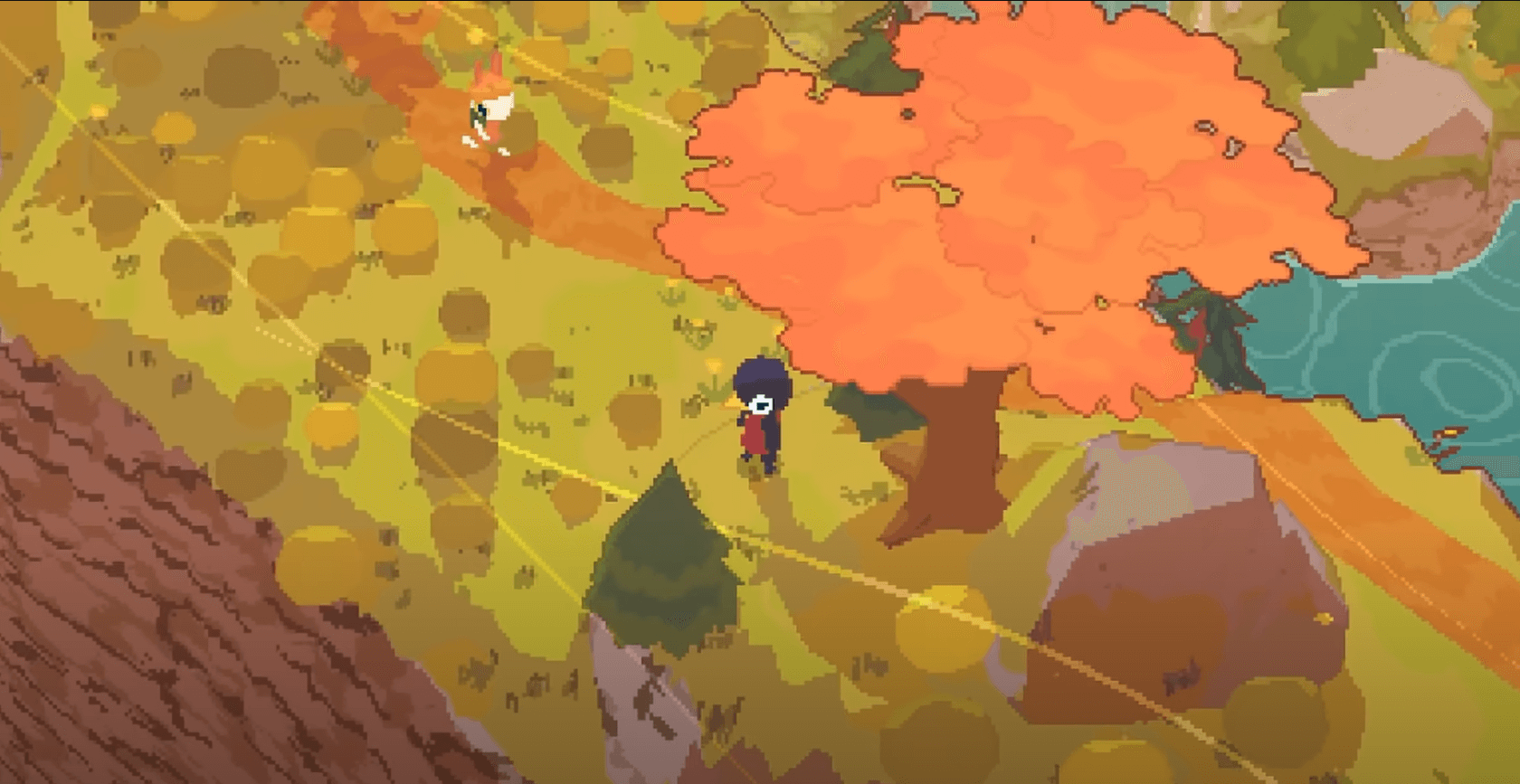
| Publisher | Whippoorwill |
| Platforms | Linux, macOS, Nintendo Switch, Windows |
| Date Released | July 30, 2019 |
| Price | About $8 USD |
Given your enjoyment of Unpacking, I believe you'll appreciate the charming simplicity of A Short Hike. Much like Unpacking, A Short Hike dwells on mundane tasks that prove to be unexpectedly engaging, and both games use minimal but meaningful narratives to keep you compelled. A Short Hike trades traditional conflict and combat for peaceful exploration, allowing players to soak in its lush, pixelated world at a gentle pace. You play as a bird trying to ascend a mountain, but how and when you reach the peak is entirely up to you. Interaction with the environment and non-playable characters is quietly delightful, echoing the simple satisfaction derived from neatly arranging objects in Unpacking.
Aesthetically, both games employ pixel art that makes ordinary scenarios feel special. Unpacking's focus on neatly arranging objects over time shares a sense of gradual progression and accomplishment with A Short Hike, although the latter employs outdoor exploration and a wider physical journey compared to the compact, indoor environments of Unpacking. The games also share a longing for nostalgia and a sense of home, but A Short Hike reaches for this through a more exterior and expressive journey, making the intimate, boxed-in experience of Unpacking feel strangely expansive. If you found joy in the tranquility and detail of Unpacking, then A Short Hike's delightful world should offer a fittingly familiar, but contrasting, extension.
24. Stardew Valley

| Publisher | ConcernedApe |
| Platforms | Android, iOS, Linux, Mac, Nintendo Switch, PlayStation 4, PlayStation 5, PlayStation Vita, Windows, Xbox One, Xbox Series X/S |
| Date Released | February 26, 2016 |
| Price | About $15 USD |
If you enjoyed the cathartic rhythm of Unpacking, you'll love Stardew Valley. Just as Unpacking allows players to sort and place items in their ever-evolving living spaces, Stardew Valley offers a similar form of comfort and control over your environment. You're tasked with running and organizing a farm that you inherit from your grandfather, and you have absolute control over how you manage it. From growing crops to raising animals, to even redesigning the entire layout of your farm, Stardew Valley offers that same level of personalization and homey vibes, just like Unpacking.
Beyond the similar sense of organization and place creation, Stardew Valley and Unpacking also share a gentle, soothing aesthetic. With lovely, pixelated art styles and calming soundtracks, they both offer a refreshing gaming experience that's as relaxing as it is engaging. Stardew Valley, however, goes beyond simply creating and sorting your spaces. It also introduces other elements like friendship and romance, exploration, and even combat. The gameplay is varied and the world is rich, making it an incredibly immersive experience akin yet distinctive from Unpacking.
23. Animal Crossing: New Horizons
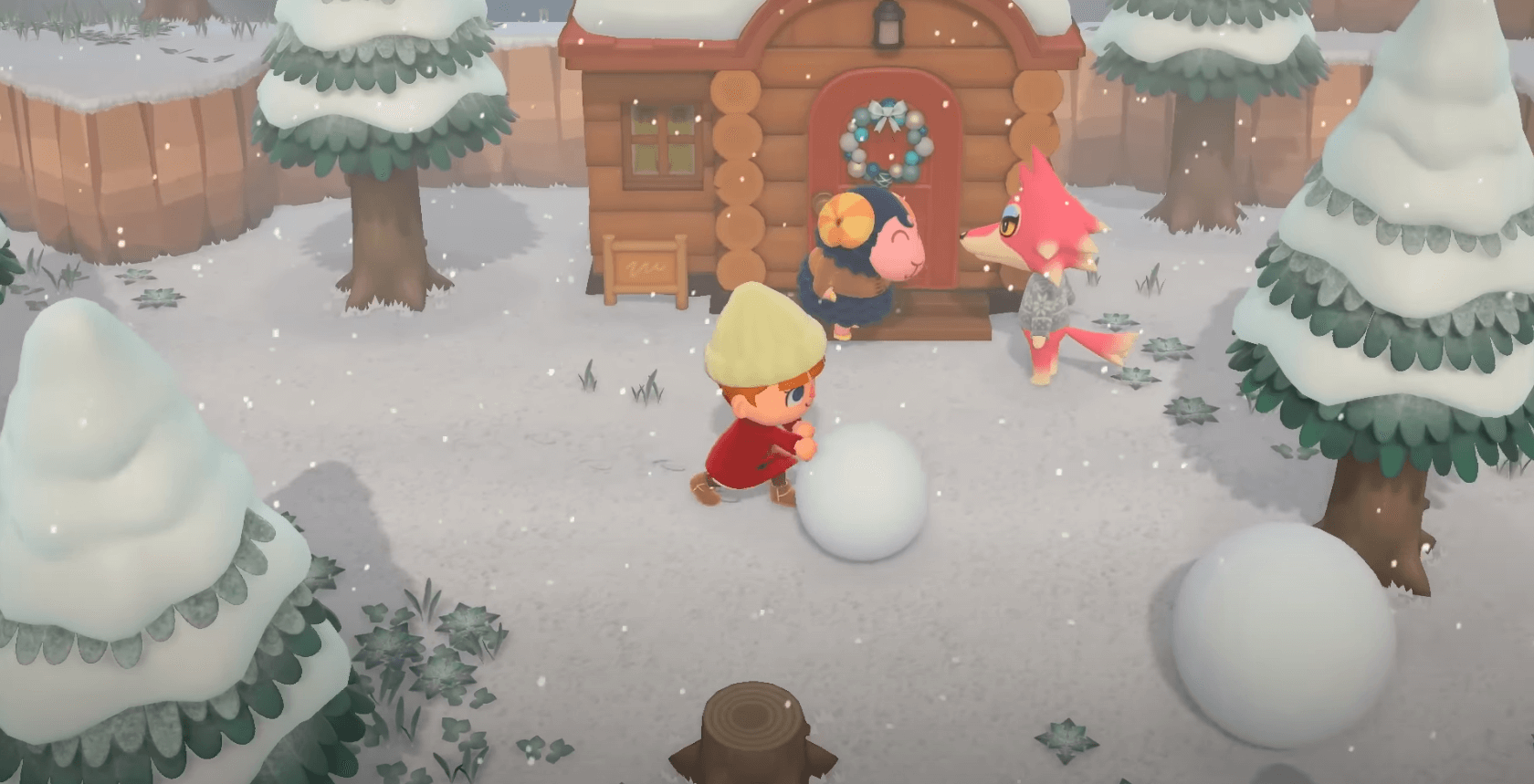
| Publisher | Nintendo |
| Platforms | Nintendo Switch |
| Date Released | March 20, 2020 |
| Price | About $60 USD |
Similar to Unpacking, Animal Crossing: New Horizons is a contemporary life simulation game with a focus on creativity and building out your own unique space. Just like in Unpacking, you have a ton of flexibility in arranging your space, which in this case is a deserted island paradise. Beyond that, you collect items to decorate and personalize your home inside and out. The game is also incredibly pleasing in design, with a vibrant color palette, cute characters and plenty of customization options that invite you to sink hours into perfecting your island’s look and feel.
Additionally, Animal Crossing: New Horizons adds a friendly community element that enriches the experience beyond solitary tidying up. You share your island with a number of anthropomorphic animals, each with their own unique personality traits. The interactions with these villagers add a layer of cozy charm encapsulated by the game. In terms of pacing, very much like Unpacking, the game is unhurried and calming, designed for relaxed play sessions. There are also seasonal changes and events that consistently keep the game fresh. If you loved the soothing atmosphere, personal organization, and creative design aspects of Unpacking, you will surely enjoy the beautiful world of Animal Crossing: New Horizons.
22. Journey

| Publisher | Thatgamecompany, Sony Computer Entertainment |
| Platforms | IOS, Microsoft Windows, PlayStation 3, PlayStation 4, PlayStation 5 |
| Date Released | March 13, 2012 |
| Price | About $15 USD |
If you enjoyed Unpacking, Journey would be an excellent next selection for you. Though Journey is not about physically unpacking items, it carries a similar central theme of a personal, non-verbal narrative that you get to unfold. Much like finding and placing objects in Unpacking reveals a wordless story of life progression, Journey takes you on a silent sojourn in a surreal desert and gradually reveals its enigmatic narrative. The joy of discovery is paramount in both games, and they embody a sense of solitude and reflection that can be incredibly engaging and emotionally impactful.
Beyond the narrative similarities, Journey also matches Unpacking in its elegant simplicity and beautiful aesthetics. In Journey, players traverse a breathtaking desert landscape, encountering intricately designed ruins, forgotten civilizations, and massive sand dunes, much like the carefully designed living spaces in Unpacking. It also tugs at your emotions with its stunningly beautiful visuals and music, much like how Unpacking does with its nostalgic graphics and sound design. Journey and Unpacking might be different in gameplay, but they give off the same vibes of peace, solitude, and a beautiful melancholy that keeps you engaged throughout.
21. Firewatch

| Publisher | Panic |
| Platforms | Linux, Mac, Nintendo Switch, PlayStation 4, Windows, Xbox One |
| Date Released | February 9, 2016 |
| Price | About $20 USD |
In your search for games similar to Unpacking, Firewatch stands out as a remarkable choice due to its shared emphasis on storytelling, contemplation, and solitude. Like Unpacking, Firewatch is a narrative-driven game that prioritizes the character's story and emotions over intense gameplay mechanics. At its core, Firewatch is an exploration game set in the Wyoming wilderness, where your only emotional lifeline is the person on the other side of a handheld radio. Firewatch keeps a tight focus on character development and storytelling similar to Unpacking and incorporates less traditional gameplay elements to immerse players into the lives and experiences of the characters.
The beauty of Firewatch and Unpacking resides in their commitment to delivering deep emotional payoff through the exploration of personal themes and internal conflicts. Firewatch explores the theme of escapism and responsibility, and Unpacking handles subjects such as growth, change, and reminiscence. Both games show a profound respect for their characters’ emotions by involving players in almost voyeuristic experiences where they act as silent observers to the characters' deepest struggles. If you loved the emotional depth and personal journey aspect in Unpacking, you will find a similar experience in Firewatch.
20. Gris

| Publisher | Devolver Digital |
| Platforms | macOS, Nintendo Switch, PlayStation 4, Windows |
| Date Released | December 13, 2018 |
| Price | About $17 USD |
As a player who loved the serenity and narrative conveyed through simple gameplay in Unpacking, your next gaming journey awaits in Gris. It is a poignant, thriving platformer where you traverse through the skewed reality of a young girl facing a painful sorrow. The game successfully carries the same profound, emotional heft, and intricate attention to detail as Unpacking; the somber color pallets stand out as you progress, much like the thematic color schemes in Unpacking blossom during your playthrough, weaving a tale without uttering a single word.
Another aspect where Gris brings about similar rosy familiarity is the game's artistry. You'll find yourself immersed in beautiful hand-drawn animations and sweeping landscapes that significantly enhance the narrative, much like how Unpacking's pixel art held layers upon layers of subtle storytelling. The ingenious blend of soothing music and captivating visual aesthetics in Gris, quite alike Unpacking's blissful harmonies interplayed with its visuals, adds that extra stroke of charm to keep you enslaved within its enigmatic world. Essentialy, if you appreciated how Unpacking gently unfolded its story through nuanced gameplay, you'll find yourself equally enthralled by Gris's delicate yet powerful approach towards storytelling.
19. The Sims 4
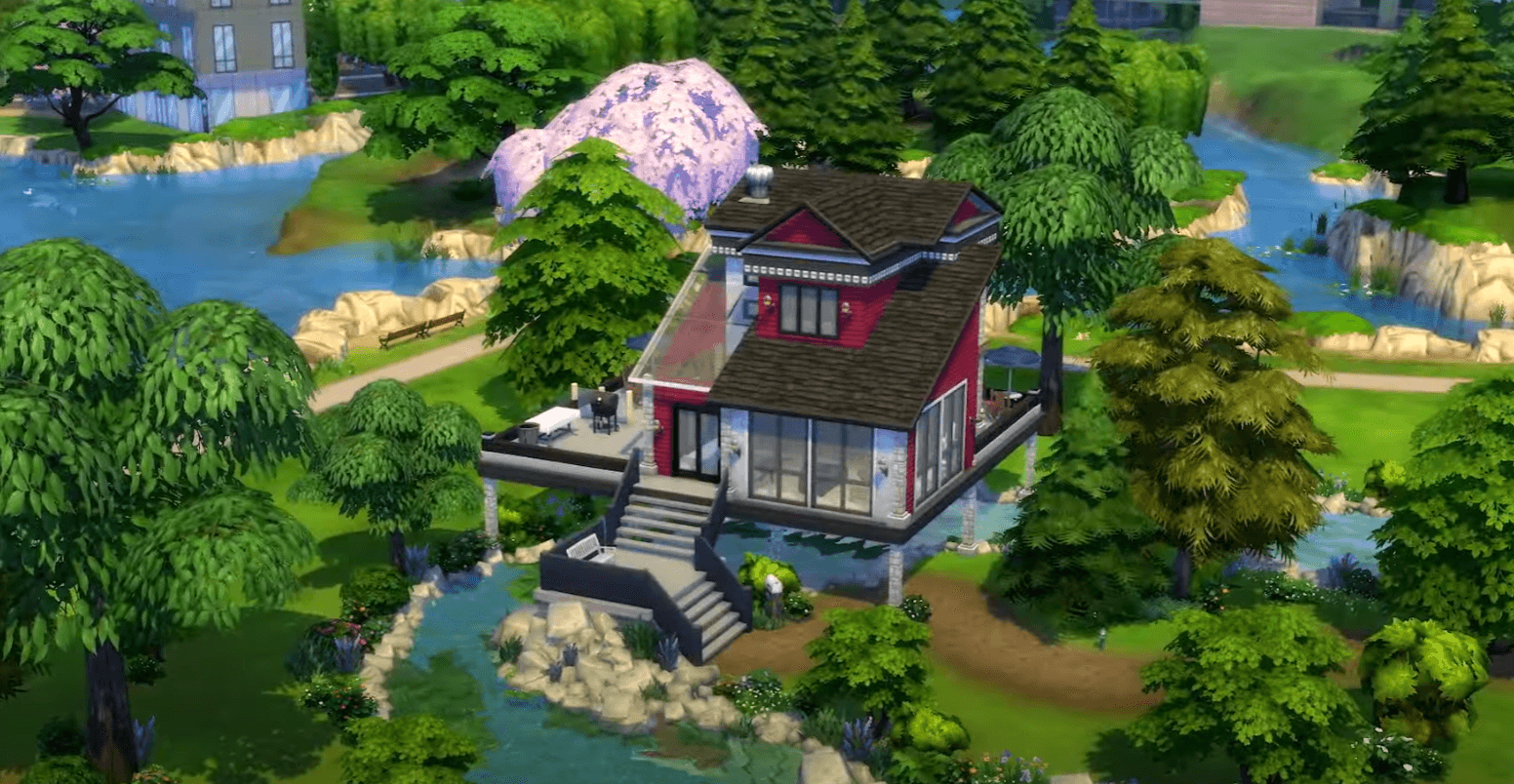
| Publisher | Electronic Arts |
| Platforms | macOS, Microsoft Windows, PlayStation 4, PlayStation 5, Xbox One, Xbox Series X/S |
| Date Released | September 2, 2014 |
| Price | About $40 USD |
If you loved Unpacking's satisfying gameplay of organizing and arranging, you might want to take a look at The Sims 4. In both games, you interact with objects and manipulate your environment to create a personalized and comfortable living space. However, The Sims 4 takes this concept even further by giving you control over the lives and routines of your created characters. You will be managing and organizing both their physical spaces and their lives, just like in Unpacking, you organized your character's belongings to reflect their changing stages of life. The catharsis of tidying and sorting that you enjoyed in Unpacking is definitely present in The Sims.
The customization aspect of The Sims 4 is indeed similar to Unpacking. In Unpacking you had the freedom to arrange personal items in different spaces, making a place feel like home over time. The Sims 4 offers the same, if not more, level of customization with endless options to furnish your Sims' homes, pick their outfits, and design their physical appearances. Each action, item, and choice can impact the Sim's environment and life, much like how you carefully placed objects in Unpacking to represent your character's narrative. The creativity and sense of personal investment in both games can indeed appeal to those who crave balance and organization in their gameplay.
18. Monument Valley

| Publisher | Ustwo Games |
| Platforms | Android, iOS, Windows |
| Date Released | April 3, 2014 |
| Price | About $4 USD |
If you enjoyed the relaxing pace and thoughtful design of Unpacking, then Monument Valley could be the perfect game for you to discover next. Much like Unpacking, Monument Valley puts emphasis on meticulous design and player immersion rather than high-stress action. Both games value storytelling through environmental interactions and progress, rather than traditional narrative techniques. There is an elegant simplicity to Monument Valley's design that aligns with the cozy atmosphere of Unpacking. You'll find yourself engrossed in the game, manipulating complex architectural labyrinths to guide the protagonist, Ida, through her mysterious world.
Can't get enough of Unpacking's captivating pixel art? Although Monument Valley takes a more minimalistic approach to its visuals, both games share a distinct artistic aesthetic that is sure to capture your imagination. Each of Monument Valley’s levels is a work of art itself, with isometric perspective puzzles reminiscent of M.C. Escher's drawings. The serenity the game offers is akin to the soothing vibe of meticulously arranging objects in your pixelated apartment in Unpacking. Monument Valley might just leave you with the same sense of satisfaction and tranquility that you got from your time with Unpacking.
17. Life is Strange

| Publisher | Square Enix |
| Platforms | Linux, MacOS, Microsoft Windows, PlayStation 3, PlayStation 4, Xbox 360, Xbox One |
| Date Released | January 30, 2015 |
| Price | About $20 USD |
If you found the act of unboxing and arranging items comforting in Unpacking, then the opportunity to manipulate time in Life is Strange would equally intrigue you. Just as Unpacking gradually unveils a narrative through contextual clues, Life is Strange does the same by placing you in the shoes of Max Caulfield, a teenage girl with the ability to rewind time. Throughout the game, you'd be making decisions and choices that have significant repercussions on the storyline, a gameplay approach similar to the puzzle-solving aspect of Unpacking.
The visual aesthetics and sound design of both games also incite similar feelings of relaxation and immersion. While Life is Strange brings a different art style using hand-painted textures, it nevertheless conveys a distinct atmosphere that complements its narrative. Much like Unpacking, this game utilizes its environment to tell stories, relying on details within the game world to provide depth and context to its characters and plot. If you enjoyed the tranquility and narrative depth found in Unpacking, you'll feel right at home with Life is Strange.
16. Night in the Woods

| Publisher | Finji |
| Platforms | Android, iOS, Linux, MacOS, Nintendo Switch, PlayStation 4, Windows, Xbox One |
| Date Released | February 21, 2017 |
| Price | About $20 USD |
Just like Unpacking, Night in The Woods is a uniquely immersive game with a compelling narrative at its core. Unpacking's gameplay is hinged on opening boxes and placing objects into a new living space and finding a sense of harmony and peace in the process. Similarly, Night in The Woods tells a story in an interactive way, allowing you to navigate the world of Mae Borowski, a young adult who returns to her hometown to rediscover her place in life. The heart of Night in The Woods lies in exploration and communication with characters, much like how you connect with the silent narrative in Unpacking through the items you interact with.
Night in The Woods uses a beautiful 2D aesthetic and engaging dialogue to create a sentimental, wholesome, and sometimes melancholic experience, tapping into themes of friendship, change, and the passage of time. Analogous to Unpacking’s wordless storytelling through domestic items, Night in The Woods lets you decipher the story by engaging with the environment and its charismatic anthropomorphic characters. The game’s emphasis on immersive storytelling, its beautiful art style, and compelling theme of homecoming bears a striking resemblance with Unpacking, making it a game you'd enjoy if you loved the silent yet profound narrative and cozy charm of Unpacking.
15. Oxenfree

| Publisher | Night School Studio |
| Platforms | Android, iOS, MacOS, Nintendo Switch, PlayStation 4, Windows, Xbox One |
| Date Released | January 15, 2016 |
| Price | About $10 USD |
If you loved the narrative-rich, atmospheric experience that Unpacking provides, Oxenfree digs even deeper into story-telling with beautifully hand-drawn background art, memorable voice-acting and a haunting, enveloping score that suddenly torpedoes you into a supernatural horror experience. Like Unpacking peels back layers of a character’s life through the items they’ve moved from place to place, Oxenfree does the same but through interactions and conversations, uncovering dark secrets and emotional nuances amongst a group of friends who unwittingly open a ghostly rift.
Both games specialize in subtlety of story-telling and allow the gamer to explore at their own pace. Oxenfree takes the concept of decision-based outcomes that Unpacking hints at, and amplifies it, each choice you make shaping the narrative and relationships with other characters. Similarly to Unpacking's silent monologist and the suggestion of story rather telling, Oxenfree’s dialogue mechanic allows for understated interplay, giving space for the player to interpret and react as they see fit. It's a mature and sophisticated take that fans of Unpacking will undoubtedly appreciate.
14. Eastshade
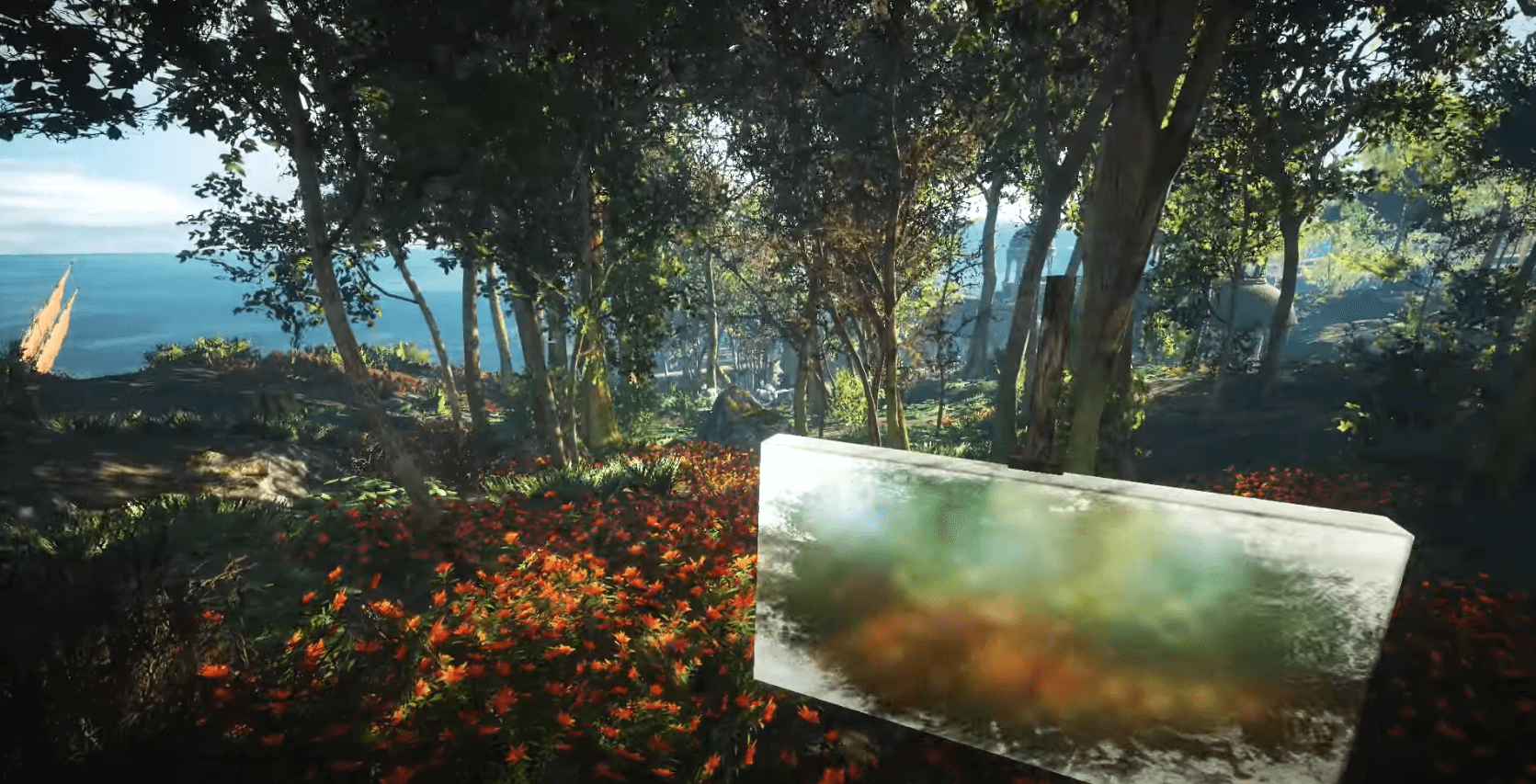
| Publisher | Eastshade Studios |
| Platforms | Microsoft Windows, Nintendo Switch, PlayStation 4, Xbox One |
| Date Released | February 13, 2019 |
| Price | About $25 USD |
Just as Unpacking highlights the beauty of everyday life, Eastshade is also a game that draws in players with its simple yet elegant charm. Much like Unpacking, the central theme of Eastshade is to explore and soak in the surroundings, rather than any pressure-filled combats or energetic pursuits. You will find similarity in the tranquility and almost therapeutic quality that both games provide. Eastshade allows you to navigate an open-world canvas, where your biggest challenge is to capture fantastic vistas onto your canvas, going hand-in-hand with Unpacking's concept of arranging objects.
Eastshade does one thing that Unpacking does exceptionally well–tell compelling stories without traditional narratives. Both games are dialogue-free, but they speak volumes through subtle cues. As in Unpacking, Eastshade also rewards patience and curiosity: the simple act of wandering, of settling at a scenic spot or finding hidden treasures can often bear unexpected fruits and fascinating stories. If you appreciated the room-to-room exploration in Unpacking, you'll enjoy the town-to-town exploration in Eastshade. The quaint charm, the depth of the world, and the non-combat gameplay make Eastshade an excellent choice for those that loved Unpacking.
13. Donut County
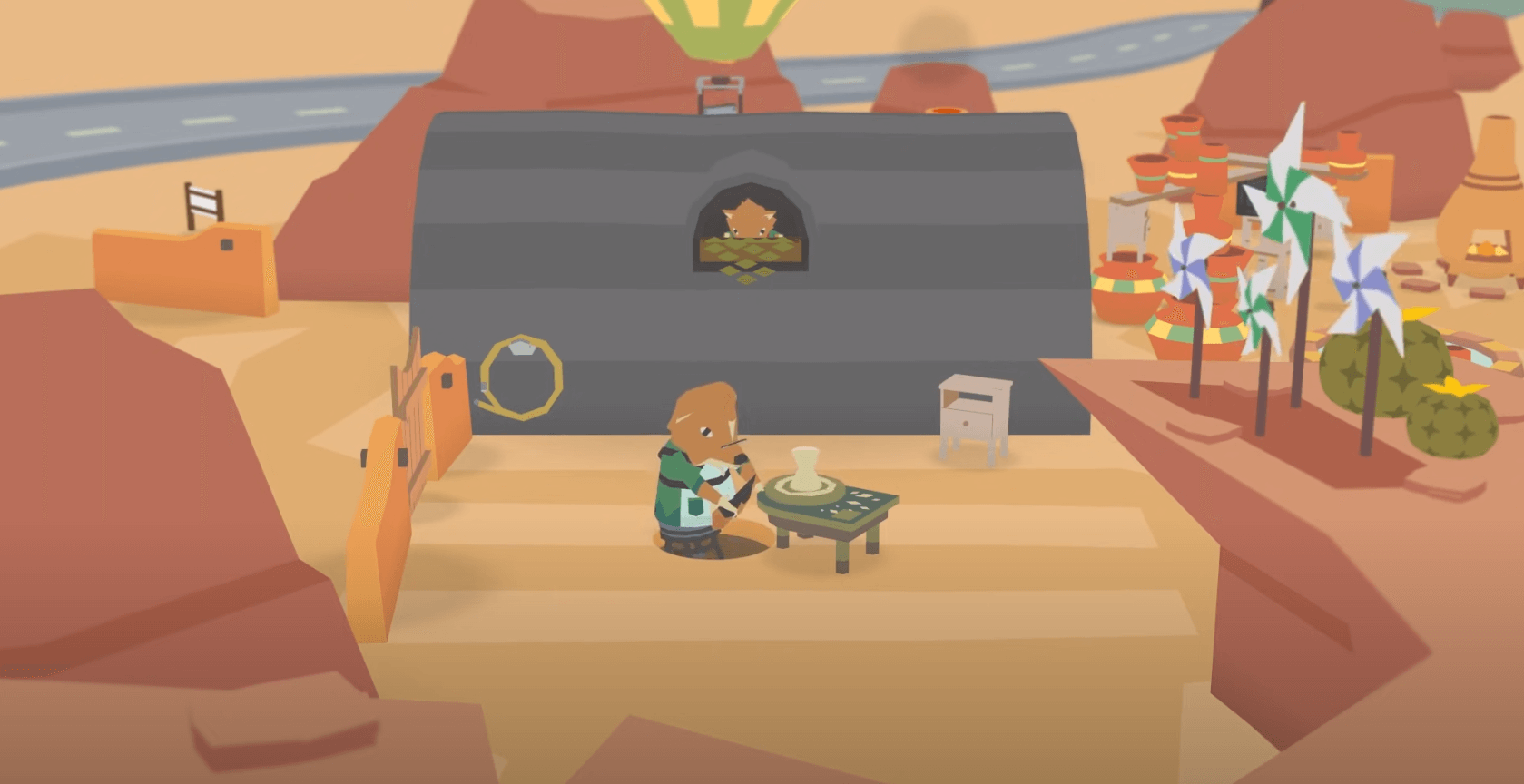
| Publisher | Annapurna Interactive |
| Platforms | iOS, Linux, MacOS, Microsoft Windows, Nintendo Switch, PlayStation 4, Xbox One |
| Date Released | August 28, 2018 |
| Price | About $13 USD |
If you enjoyed Unpacking, you'll find a lot to love about Donut County. Much like Unpacking, Donut County offers a satisfying and therapeutic gameplay experience by introducing a unique mechanic that's simple yet immersive. Instead of unpacking objects and organizing them into their respective spaces, Donut County lets you take control of a hole to swallow objects in a colorful environment. Both games share a charming art style, sophisticated design elements, and a relaxed approach to gameplay.
But there's also a great sense of discovery in both narratives. In Unpacking, you reveal a character's personal life and history through the act of unpacking their belongings. Similarly, in Donut County, you'll learn about the relationships and habits of anthropomorphized animal residents as you play. The story unfolds in a humorous and quirky way as you progress through the levels, offering a backbone to the essential gameplay. If you're looking for a game that offers a thoughtful diversion and a touch of whimsy, then Donut County is an exceptional choice.
12. Spiritfarer
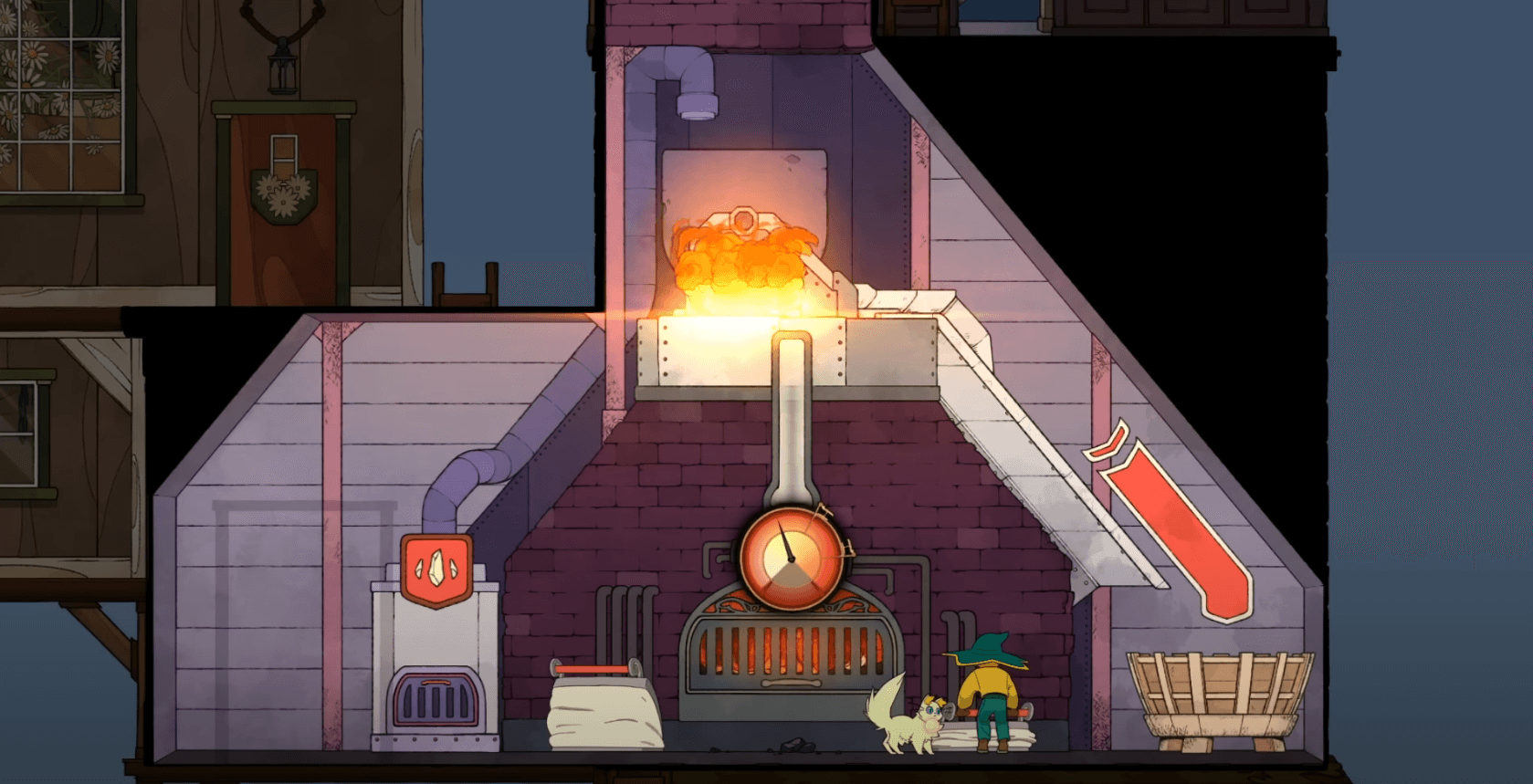
| Publisher | Thunder Lotus Games |
| Platforms | Microsoft Windows, Nintendo Switch, PlayStation 4, Stadia, Xbox One |
| Date Released | 18th August 2020 |
| Price | About $30 USD |
Just as Unpacking allowed you to experience the serene satisfaction of order and arrangement, Spiritfarer provides a similar connection with everyday life activities, presented in a charming visual style. In both games, storytelling is done predominantly through subtle environmental details and actions, allowing for a unique narrative experience. However, Spiritfarer expands on this by integrating it into a larger, narrative-driven experience. You'd be interacting with the game world in many of the same ways, such as by organizing your boat, cooking meals, or gathering resources. Spiritfarer also shares Unpacking's penchant for beautiful, pixelated graphics, but introduces a seamless world that you can navigate in your ferry, opening a door to dynamic exploration.
At their heart, both Unpacking and Spiritfarer are about memories, relationships, and the passage of time. You're tasked with helping spirits transition to the afterlife in Spiritfarer, but these spirits are characters with deep stories to uncover, that unfurl as they spend their last days with you. You sort, organize, take care of them and lead them to their destination, much like you've organized life's clutter in Unpacking. Moreover, the game is brimming with small quiet moments and tangible tasks that induce tranquility, and these moments mirror the zen-like realm that Unpacking has. So, if you appreciated the meditative, narrative, and visually appealing aspects of Unpacking, then Spiritfarer is sure to strike the same chords and pull you into its beautiful, heartfelt journey.
11. Kind Words
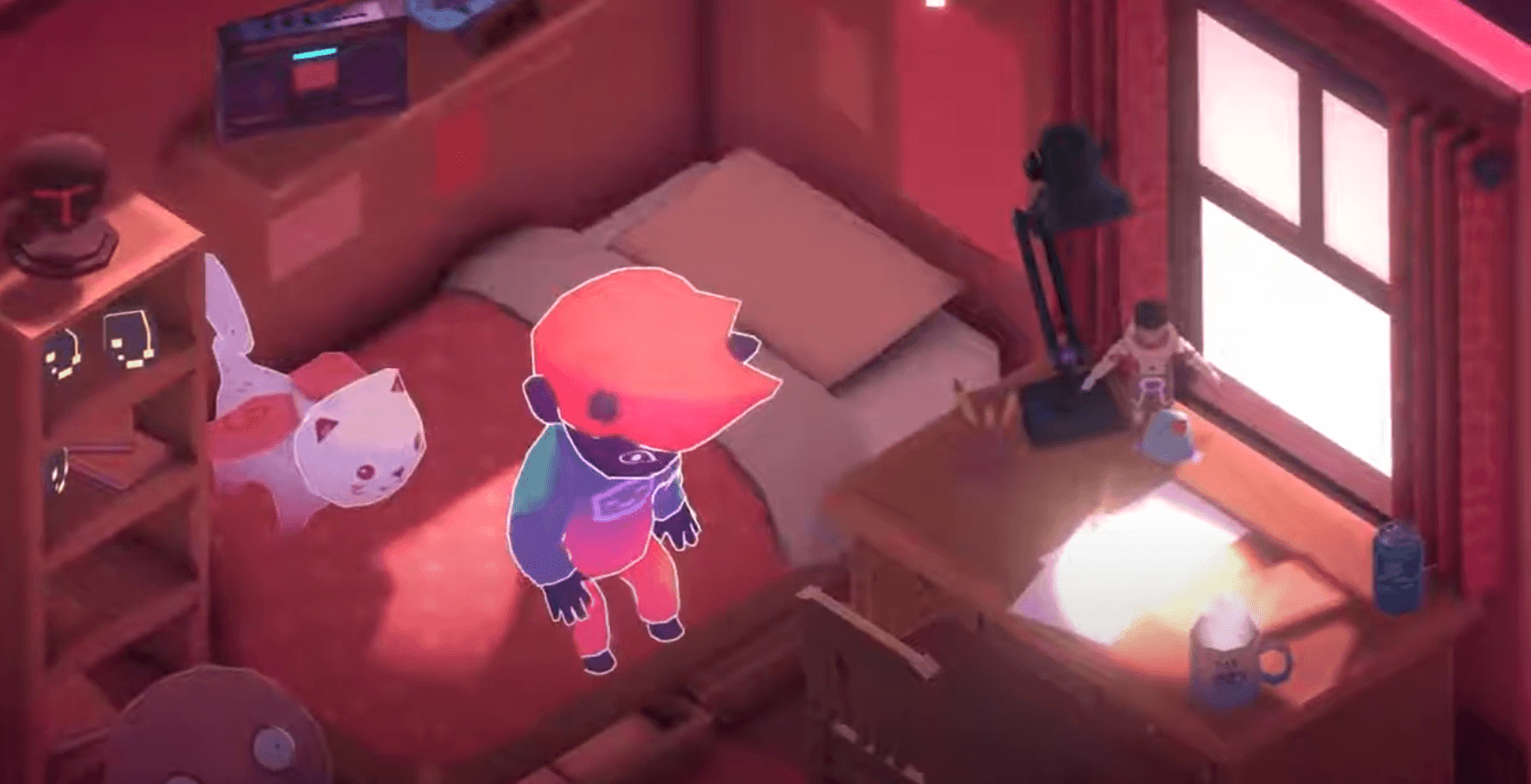
| Publisher | Popcannibal |
| Platforms | macOS, Microsoft Windows, Nintendo Switch |
| Date Released | September 12, 2019 |
| Price | About $5 USD |
If you loved the serene introspection in Unpacking, Kind Words should be right up your alley. As a game rooted in emotional exploration, it urges you to communicate with real people, delve into their dilemmas, problems, and feelings, and share kind words to help them cope. This unique game provides an interactive space for players to mutually support each other, not with grand quests, but with empathy, compassion, and understanding, similar to the thoughtful arrangement of personal belongings that reveals character stories in Unpacking.
Similar to the way Unpacking uses simple task completion like unpacking boxes to deliver narratives, Kind Words relies on minimal yet meaningful actions such as sending, receiving, and responding to letters to make a profound impact. Both games exude calmness, allowing for relaxed gameplay while subtly unveiling deeper themes. Just as you appreciated the gentle storytelling of Unpacking, you'd love the soulful connections, virtual camaraderie and the bittersweet warmth of being human in Kind Words. This lightly priced gem serves not just as a game, but as a platform for emotional expression and catharsis.
10. What Remains of Edith Finch

| Publisher | Annapurna Interactive |
| Platforms | Microsoft Windows, Nintendo Switch, PlayStation 4, Xbox One |
| Date Released | April 25, 2017 |
| Price | About $20 USD |
If the captivating storytelling and meticulous attention to detail in Unpacking resonated with you, What Remains of Edith Finch could be your next favorite. Both titles are notable for their extraordinary narrative techniques, drawing you in not with blockbuster action, but with an intimate look into the lives of its characters. In What Remains of Edith Finch, similar to Unpacking, players uncover touchingly personal stories by examining items left behind by the members of the Finch family. Each item inspected unveils a bit more of the story, diving deep into the imagination of each family member.
Just like Unpacking, What Remains of Edith Finch isn't about winning or losing, it's about the experience. Both games urge players to take a slow, thoughtful approach, savoring small moments and paying close attention to detail. If you enjoyed the mindfulness and richness of Unpacking's spaces, you’ll find yourself equally entranced by the Finch family home, which is filled to the brim with intricate details and secrets waiting to be discovered. Playing this game feels like flipping through an emotional photo album: each room tells a different story, each object emanates nostalgia—and isn't that precisely what made you fall in love with Unpacking?
9. Gone Home

| Publisher | The Fullbright Company |
| Platforms | Linux, macOS, Nintendo Switch, PlayStation 4, Windows, Xbox One |
| Date Released | August 15, 2013 |
| Price | About $15 USD |
If you enjoyed Unpacking for its narrative-driven gameplay, and emphasis on environmental storytelling, you'll undoubtedly appreciate the style and approach of Gone Home. This game creatively uses objects and memorabilia to gradually unfold a storyline that's as engaging as it is emotionally nuanced. It's a first-person interactive exploration simulator, where you become a young woman returning home after travelling abroad, only to find the house empty. Your challenge is to unravel the mystery of what happened there by thoroughly exploring the environment.
Similar to Unpacking, the minimalistic gameplay of Gone Home is all about interacting with the world around you. It resonates with the quiet allure of sorting through items and memories, cleverly uncovering subtle story clues through observation and interaction, a facet that made Unpacking so unique. Furthermore, Gone Home has a rich, atmospheric setting rendered in the same voxel-style graphics as Unpacking. This game offers a beautiful balance between gameplay and narrative, diving into compelling themes like family, identity, and self-discovery. A precise measure of familiarity and novelty awaits you in Gone Home, making it a natural progression from Unpacking.
8. The Witness

| Publisher | Thekla, Inc. |
| Platforms | Android, iOS, MacOS, PC, PlayStation 4, Xbox One |
| Date Released | January 26, 2016 |
| Price | About $40 USD |
If you enjoyed the meditative and rewarding puzzling of Unpacking, The Witness might just be the perfectly complementary game you're seeking for your collection. Notable for its elegant game design and immersive nature, The Witness excellently mirrors the tactile pleasure found in Unpacking. Much like arranging a myriad of objects in a room, The Witness has players engaging with copious intricate and interlocking line puzzles scattered across a beautifully isolated island. These puzzles become progressively more intricate, yet still share Unpacking's gentle and rewarding unfolding, as solutions bring an enlightened understanding of the game's world and mechanics.
Aside from in-depth puzzles, what makes The Witness akin to Unpacking is the way it beautifully intertwines its gameplay with an honest and nuanced narrative. Unpacking's wordless storytelling is echoed in The Witness, where the story is told through exploration and environmental cues, making each achievement feel personal and significant. Also, like Unpacking's array of domestic environments, The Witness provides players with an array of diverse environments — from dense forests to barren deserts to tranquil seaside locales. It's a quiet exploration game that rewards patience and observation, making it an ideal successor for any fan of the soothing, methodical gameplay found in Unpacking.
7. Celeste

| Publisher | Extremely OK Games |
| Platforms | Linux, MacOS, Nintendo Switch, PlayStation 4, Xbox One, Windows |
| Date Released | January 25, 2018 |
| Price | About $20 USD |
If you loved the tranquil, personal experience of Unpacking, Celeste might strike a chord with you. Both games are an amalgamation of creative narrative and immersive gameplay, albeit in distinct ways. Unpacking lets you sort through boxes and arrange belongings in various living spaces, building an intimate connection with the nameless protagonist by offering a window into their life through the objects they own. Celeste, on the other hand, propels you on an absorbing journey of self-discovery as you assist the main character, Madeline, in her quest to climb the perilous Celeste Mountain.
Celeste shares Unpacking's warmth and depth. Just like Unpacking, Celeste revolves around personal growth, self-reflection, and the willingness to overcome life's challenges. Its focus is on Madeline's struggle with her internal demons, mental health, and self-doubt, making the game a deeply symbolic and emotionally charged endeavor. It champions simplicity and minimalism but houses complex themes under its pixelated exterior, similar to Unpacking. Even though they belong to different genres—Celeste is an engaging platformer—both games artistically explore the protagonist's psyche through unique narrative strategies and atmospheric storytelling, offering a rewarding gaming experience shaped by therapy, resilience, and emotional catharsis.
6. Fez

| Publisher | Polytron Corporation |
| Platforms | Linux, Mac, Nintendo Switch, PC |
| Date Released | April 13, 2012 |
| Price | About $10 USD |
If you enjoyed the attention to detail and serene pacing of Unpacking, then Fez is definitely worth your attention. In it, you'll navigate an expansive pixel art world that, much like Unpacking, rewards methodical exploration and careful observation. Just like in Unpacking, where rearranging your surroundings can reveal new perspectives and solve challenges, Fez asks you to manipulate your 3D environment in 2D space. In doing so, you can reveal previously hidden paths and uncover the game's many secrets layered throughout its expansive, pixel art world.
Much like Unpacking's wordless storytelling and focus on meticulous organization, Fez tells its story through the environment, inviting you to piece together its history as you comb through its lush, pixelated world. You won’t be arranging books or organizing cabinets, but you'll be manipulating the world to reveal concealed doors, hidden platforms, and even secret languages. Playful, serene, and yet deceptively challenging, Fez captures the essence of thoughtful exploration and the joy of discovery that runs through the heart of Unpacking. It's definitely a game you should check out.
5. Hollow Knight

| Publisher | Team Cherry |
| Platforms | macOS, Nintendo Switch, PC, PlayStation 4, Xbox One |
| Date Released | February 24, 2017 |
| Price | About $15 USD |
Although at first glance Hollow Knight might not seem like Unpacking due to its Metroidvania style, you'll soon find that both games share a meaningful and emotional narrative that is patiently unveiled through environmental storytelling. In both games, you are thrust into a world with minimal guidance, incentivising exploration and interaction with the environment to slowly unravel the intricacies of the story. Just as Unpacking delivers narrative through the careful placement of objects in lounge rooms and kitchens, Hollow Knight conveys its story through meticulously designed landscapes, ruins, and character dialogue in its decaying but beautiful world.
Hollow Knight also shares Unpacking's compelling single-player journey. Like the zen-like experience of sorting objects in Unpacking, Hollow Knight provides a tranquil sense of discovery as you traverse the atmospheric caverns of Hallownest, helping you immerse yourself fully into the experience. The seemingly simple gameplay is deceptively nuanced and rewarding, requiring your thoughtful engagement just like organizing your digital living spaces in Unpacking. Overall, if you appreciated the gentle reveal of narrative through immersive interactions in Unpacking, Hollow Knight is a perfect follow-up with a bit more of a dark fantasy twist.
4. The Stanley Parable
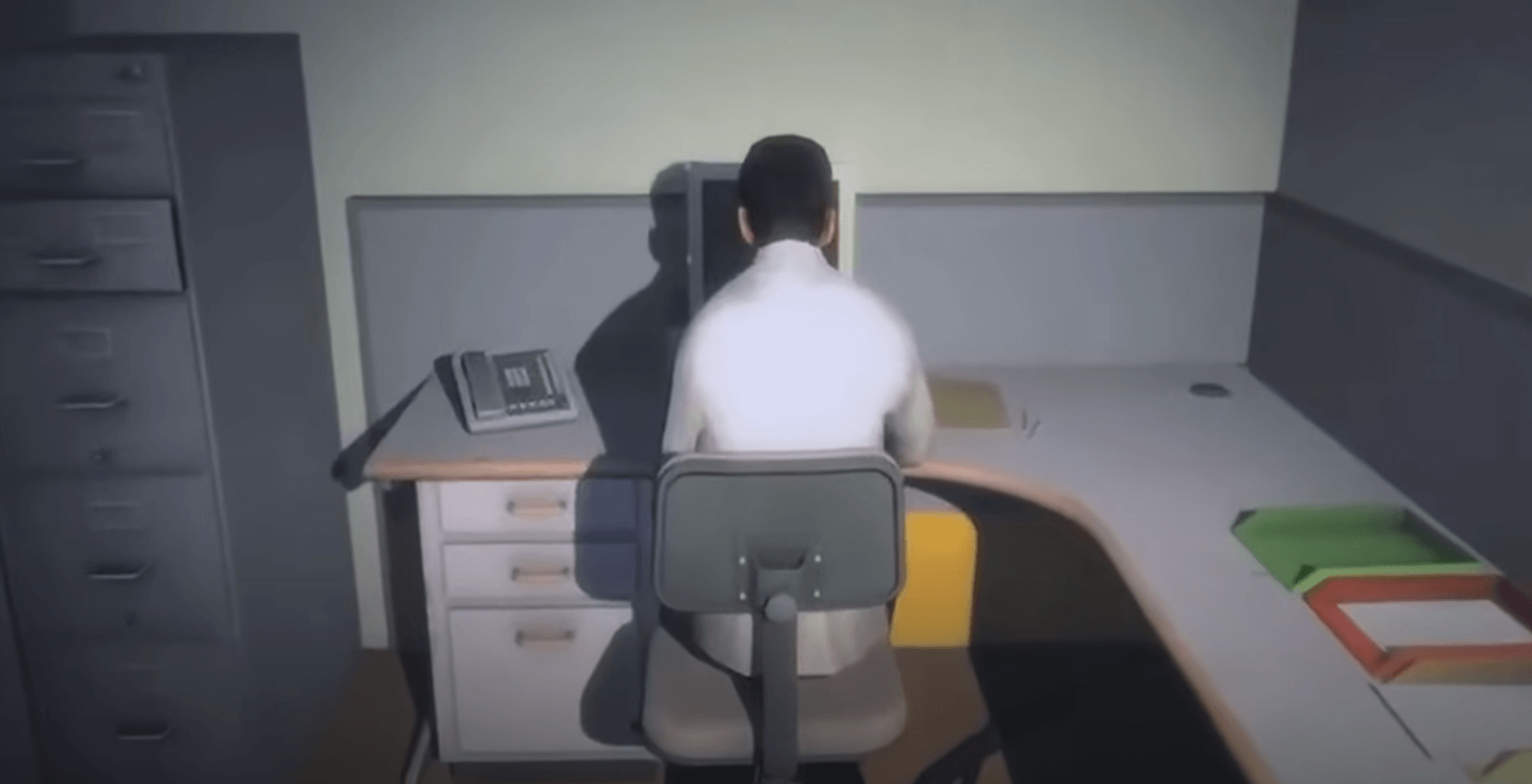
| Publisher | Galactic Cafe |
| Platforms | PC, PS4 |
| Date Released | October 17, 2013 |
| Price | About $15 USD |
While The Stanley Parable may initially seem disparate from Unpacking on the surface, there are profound similarities upon further examination that lends to their kindred spirit. For one, akin to Unpacking, The Stanley Parable thrives in its simple premise of everyday routine and then, through design and clever narrative cues, subverts your expectations and transforms routine into a tool for profound storytelling. Where Unpacking leveraged the act of settling into new spaces to reflect life shifts, The Stanley Parable hinges on the despondency of the corporate 9-to-5, exploring themes of conformity, free will, and existentialism.
Fundamentally, both games use mundane environments and tasks to tell remarkable stories, and turn ordinary into extraordinary. The Stanley Parable, like Unpacking, is interactive art – a videogame that becomes a cathartic journey of self-exploration and contemplation. However, where Unpacking might fill you with nostalgia, The Stanley Parable fills you with questions about reality, choice, and the narratives we inhabit in our daily lives. If you loved the warm, introspective experience provided by Unpacking, you're likely to appreciate the thoughtful, albeit more satirical, process of self-discovery in The Stanley Parable.
3. Undertale

| Publisher | Toby Fox |
| Platforms | Microsoft Windows, Nintendo Switch, OS X, PlayStation 4, PlayStation Vita |
| Date Released | September 15, 2015 |
| Price | About $10 USD |
Like Unpacking, Undertale offers a captivating storytelling experience that values choices and emotional connectivity. Much like Unpacking, which makes mundane tasks unexpectedly engaging as you unravel narratives through objects, Undertale keeps its combat system refreshing with a unique twist. Instead of the traditional battling monsters, it presents every encounter as a puzzle to be solved. Making the right choices can aid in dodging bullets, and the mercy option adds an empathetic layer, making every decision consequential. The game values your compassion and moral standards, adding a depth of honest emotions and empathy, reminiscent of how Unpacking conveys a sense of emotional connection and nostalgia through everyday objects.
Undertale shares a similar charm with a 2D pixel art style like Unpacking. While Unpacking uses this style to evoke a sense of memory and the past with objects that reveal narrative layers of a person's life and their progression, Undertale uses it to present a fascinating, alternate world where monsters and humans coexist. The simple art style encapsulates a wide range of memorable settings and quirky, lovable characters that enhance the narrative journey. The combination of humor, heart, and unique gameplay mechanics in Undertale makes it a stand-out title, something Unpacking fans who love emotionally rich and unique games would certainly appreciate.
2. Sayonara Wild Hearts
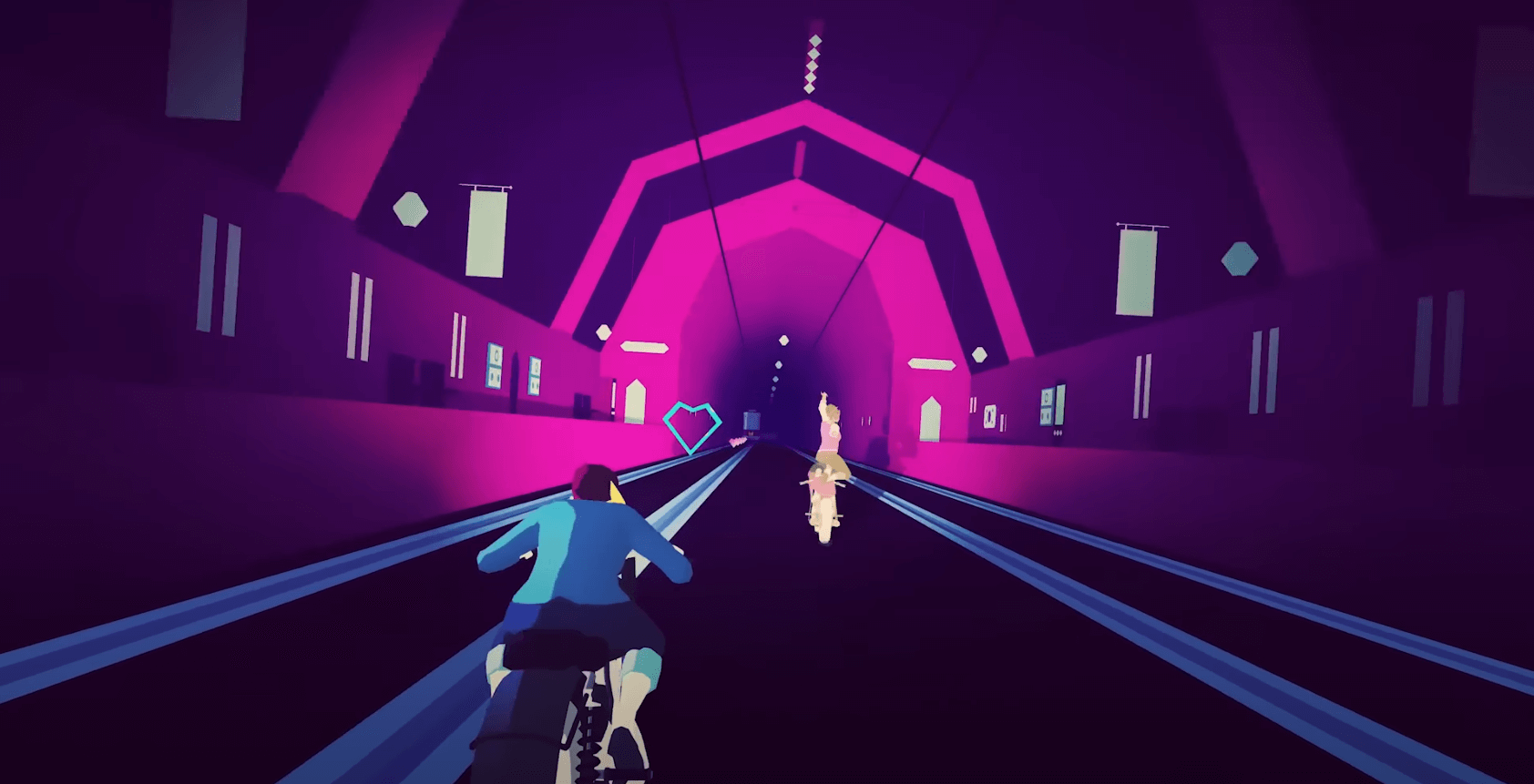
| Publisher | Annapurna Interactive |
| Platforms | Android, iOS, Nintendo Switch, PlayStation 4, Windows, Xbox One |
| Date Released | September 19, 2019 |
| Price | About $13 USD |
Like Unpacking, Sayonara Wild Hearts is a narrative-driven game with a strong emphasis on character emotions, compartmentalization, and personal growth. In Unpacking, you learned about the protagonist's life through the items they unpacked in different environments, while Sayonara Wild Hearts utilizes rhythmic gameplay and music to tell its story. Both games feature colorful aesthetics and a distinctive style, creating an immersive experience that's worth sinking several hours into.
Also, if you loved the puzzle-solving aspect of Unpacking, you’d appreciate the level progression system in Sayonara Wild Hearts. In Unpacking, organizing objects in various spaces can be likened to the game mechanics in Sayonara Wild Hearts where you navigate through rhythmic obstacles and collect hearts for points. Despite their different genres—Unpacking is a zen puzzle game and Sayonara Wild Hearts is an arcade-style music game—both games do an exceptional job of meshing gameplay with storytelling, providing equally satisfying conclusions to their unique, well-crafted tales.
1. Papers, Please
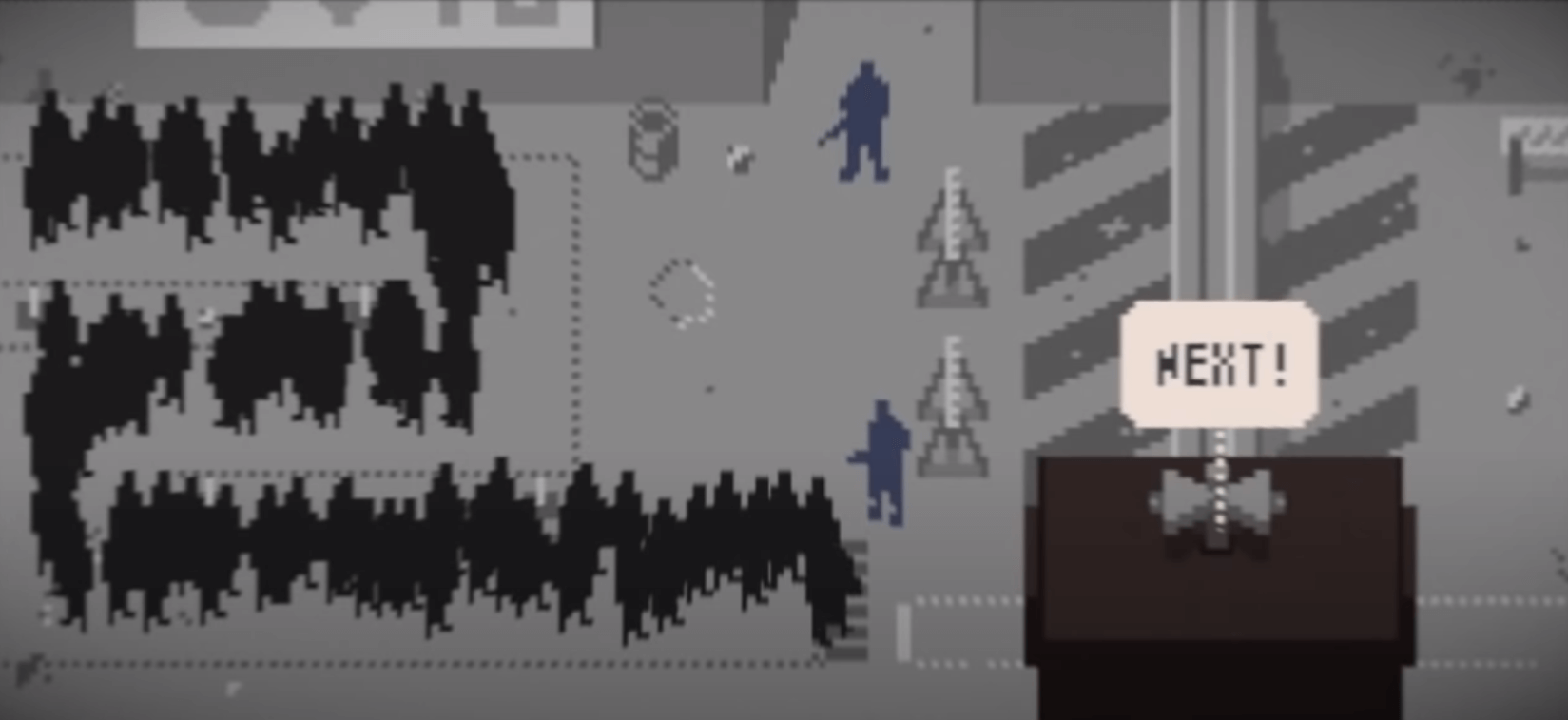
| Publisher | 3909 |
| Platforms | LINUX, macOS, Windows |
| Date Released | August 8, 2013 |
| Price | About $10 USD |
Coming in at #1, Papers, Please and Unpacking might seem worlds apart, but they share quite some interesting similarities that you, as a fan of Unpacking, might genuinely appreciate. Both games are essentially about sorting items and demand meticulous attention to detail. While in Unpacking you're carefully arranging items in your new home, in Papers, Please you take on the role of an immigration officer, examining passports and other documents, deciding who can enter the fictional dystopian country of Arstotzka. It's all about analyzing the minutiae and making decisions based on that, such as determining whether a document is a forgery or not. It truly puts your organizational skills and keen eyes for detail to the test, much like Unpacking.
Another shared value of these two games is the mundane, everyday activities that form a narrative through indirect storytelling. Unpacking tells stories about the unseen protagonist's life through the items you are unpacking. Similarly, in Papers, Please, the story unfolds subtly through the documents you process and the occasional moral dilemmas you face. It's an immersive experience where you reveal bits of the narrative at your pace. Even though Papers, Please has a somewhat darker tone compared to Unpacking, it possesses an equally captivating atmospheric realism that presents the humdrum life in a unique, engaging manner. If you enjoyed the careful task of unfolding a story through simple actions in Unpacking, Papers, Please is absolutely worth checking out!
You've reached the end! Check out the home page for more informative articles on your favorite games.